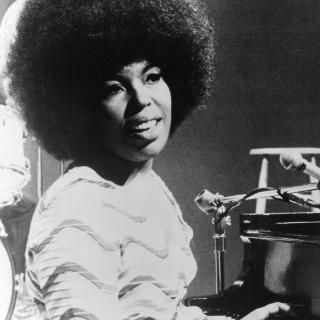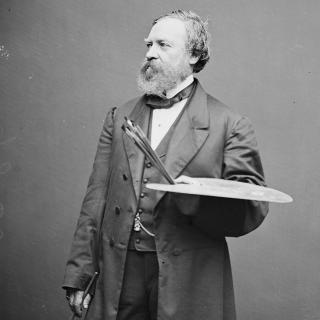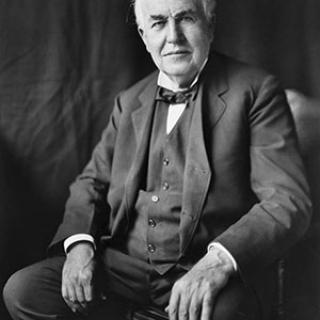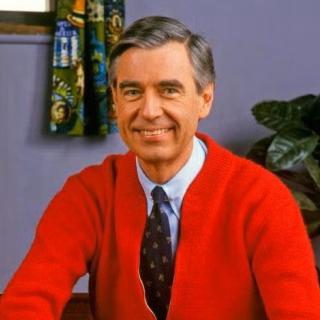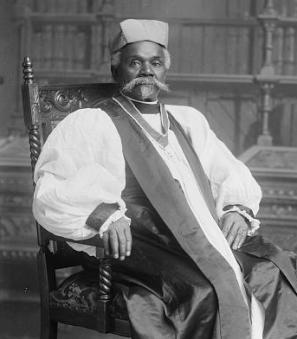An Evening at the White House with Johnny Cash
April 17, 1970 was a big day for the United States—President Richard Nixon even described it as the “proudest day of [his] life and in the life of the country.”[1] That afternoon, the ill-fated Apollo 13 crew splashed down in the Pacific Ocean and made it to safety. The nation breathed a collective sigh of relief.
But the day wasn’t over yet. That evening, President Nixon would sit in the East Room of the White House for another cultural milestone: a legendary performance by country music star Johnny Cash.
At the moment the Apollo 13 command module splashed down, Johnny Cash was likely tuning his guitar and getting his outfit ready for the night. He and his wife, musician June Carter Cash, were soon heading to the White House—and their concert had already shaped up to be a highly-anticipated event.
By April 1970, Johnny Cash had sold millions of records, performed before crowds of thousands of people, and started his own television show. He regularly wrote and performed songs for inmates, soldiers, Native Americans, and the poor. He crafted his own style of music, one which simultaneously entertained audiences and also proved meaningful. Johnny Cash was emblematic of American culture and appealed to the common people, bringing the country music genre to life with a bit of compassion.[2]
In the months prior to his appearance at the White House, Cash openly stated his support of President Nixon—not because of his policies (in fact, Cash had not even voted for him),[3] but because he wished for a peaceful end to the ongoing war in Vietnam.[4] As soon as Nixon heard of Cash’s sentiments, he invited the singer to the White House as the fourth artist featured in his “Evening at the White House” concert series.[5]
The president’s decision was certainly a bold one. Hoping to garner support from Cash’s expansive national fanbase, Nixon likely thought this performance would solidify Cash’s support for the Republican party’s platform, as well as demonstrate that he enjoyed one of America’s most popular genres.[6]
The biggest flaw in Nixon’s plan? He didn’t really know very much about country music.
This fact became rather obvious when word got out about the president’s three song requests for the evening: Cash’s own “A Boy Named Sue,” Merle Haggard’s “Okie from Muskogee,” and Guy Drake’s “Welfare Cadillac.”
Shocked upon hearing the requests, Cash agreed to perform “A Boy Named Sue”—but he refused to sing the other two. He insisted that he didn’t have time to learn them, and that he didn’t want to step on their original artists’ toes. Additionally, though, as Cash later wrote, the songs were “lightning rods for antihippie and antiblack sentiment.”[7]
“Okie from Muskogee,” written by Merle Haggard, is a decidedly anti-hippie song, comparing a person from Muskogee, Oklahoma with “the hippies out in San Francisco” who “let [their] hair grow long and nasty and dirty.”[8] On the other hand, Guy Drake’s “Welfare Cadillac” tells the story of a welfare recipient who cheats the system, spending his checks on a new Cadillac.[9]
Many people, including some officials in Tennessee, were outraged by the news of Nixon’s requests—especially “Welfare Cadillac.” Herman L. Yeatman, the Tennessee Commissioner of Welfare, wrote to the president that the song “degrades everyone who has found it necessary to become a recipient, adds to the irritation of anyone whose taxes must be used to support the needy, and distorts the facts about the welfare program.” Baxton Bryant, a member of the Tennessee Council on Human Relations, said of the choice, “I thought there must have been some mistake…. I couldn’t believe that the President of the United States would request such a performance.”[10]
Reporters immediately inquired about the matter. It appears that Nixon did enjoy the song “Okie from Muskogee,” congratulating Merle Haggard on the song in a personal letter.[11] In regards to “Welfare Cadillac,” though, White House Press Secretary Ronald L. Ziegler embarrassedly confessed that Nixon might’ve just listened to a tape recording of a selection of country music and “enjoyed that particular tune” without knowing much about it.[12]
While Johnny Cash asserted that “[the] issue wasn’t the songs’ messages…. The request had come in too late,”[13] the press ran with their own version of the story, making it appear that Cash disobeyed presidential orders and challenged Nixon’s ideological beliefs. Whether or not this was true, an atmosphere of excitement and gossip arose surrounding the April 17 performance.
That night, the East Room of the White House was filled with over 200 guests: politicians from the South, country music stars, and members of the Cash, Carter, and Nixon families. Notably, Cash’s 71-year old father, Ray, sat excitedly in a rented tuxedo, the first one he had worn in his life: "I’ve never had any reason to own one before this. I don’t get invited to many black-tie affairs. This one, I think, is the first. But it’s a big ‘un.”[14]
Soon, Johnny Cash, wearing a pussy-cat bow and high-heeled cowboy boots, took the stage with his wife and their bands. President Nixon joined them, introducing Cash with a small joke referencing the recent press drama:
It’s rather hard to describe Johnny Cash in terms that are perhaps adequate, except for those who know his music. I’m not an expert on his music; incidentally, I found that out when I began to tell him what to sing.”
The crowd roared with laughter before the president continued:
But I do know that he was born in Arkansas, and he now lives in Tennessee, but he belongs to the whole country. The music that he represents tonight is called country music and western music. But I think it’s really American music, because it speaks in stories about Americans in a way that touches the hearts of all Americans: North, East, West and South.”[15]
After Nixon returned to his seat, Cash launched into his show. Honoring the president’s request, he began the night with “A Boy Named Sue.” It didn’t take long for the audience to start singing along, tapping their feet, and cheering enthusiastically at his music. Cash and his musical troupe performed with contagious passion and heart, making their way down a setlist full of hymns, dotted with songs about his childhood.
One publication described Cash’s stage presence as such:
His coal-black hair hung long over his collar, and large beads of sweat rolled down his face as he strode the stage with microphone in hand and a guitar swinging at his hip when he was not picking the strings of the flashy instrument.”[16]
Though Cash historically toed the line of politics, he did use his platform that evening to perform one particularly stirring number: “What is Truth?” Rather haunting in tone, the song’s verses shift between various scenarios of young people questioning why the world is the way that it is: from a little boy asking his father why war exists, to a young man on a witness stand who tells the truth but is not heard because of his appearance.[17]
This piece received a tremendous burst of applause, though the president reportedly looked uncomfortable for its duration.[18] In fact, throughout the entire concert, Nixon did not appear to “tap a toe, shake his head, or clap his hands in rhythm to the music, although guests seated all around him were doing so.”[19]
Nevertheless, when the show finished and the audience gave Cash, his wife, and their bands a standing ovation, Nixon sent someone to the stage to ask him to perform another number. Perhaps he had enjoyed the concert, after all.[20]
After the show, the Nixons invited Johnny and June Carter Cash on a tour of the family quarters of the White House. According to Cash, the Nixons were incredibly kind and welcoming, even allowing him to lie down on the Lincoln bed and explore other parts of their home. Though Nixon would be flying to Hawaii the next day to meet with the Apollo 13 astronauts, he allowed the Cashes to stay longer and relax. As the artist recalled later:
[Nixon] made a very good impression on me. I couldn’t detect any artifice or calculation about his friendliness and interest in me, or his enjoyment; it seemed to be the real thing. That, I thought, must be what made him the consummate politician: the ability to focus, naturally, on whoever he was with and make them believe that at that moment they were the most important person in the world to him.”[21]
It’s possible that Johnny Cash’s show made a great impact on the president, as well. In 1974, the Nixons appeared on stage at the Grand Ole Opry in Tennessee during the new facility’s dedication ceremony. There, Nixon avoided the political references that had marked Cash’s visit to the White House in 1970. Instead, the president offered more middle-of-the-road remarks about country music’s cultural significance to the United States:
It talks about family, it talks about religion, the faith in God that is so important to our country and particularly to our family life. And as we know, country music radiates a love of this Nation, patriotism.”[22]
Footnotes
- ^ [1] Paul Hope, "GOP Parley Winds Up With Cheers For Heroes," The Evening Star (Washington, DC), April 18, 1970, 2.
- ^ [2] Tom Dearmore, "Johnny Cash: Have Guitar, Will Travel," The Baltimore Sun (Baltimore, MD), September 21, 1969.
- ^ [3] Johnny Cash and Patrick Carr, Cash: The Autobiography (San Francisco: HarperSanFrancisco, 1997), 214.
- ^ [4] ReMastered: Tricky Dick and the Man in Black, directed by Sara Dosa and Barbara Kopple, Netflix, 2018.
- ^ [5] "Nixon's Choice: Personalities," The Washington Post, Times Herald (Washington, DC), March 21, 1970, C-5.
- ^ [6] Vera Glaser and Malvina Stephenson, "Offbeat Washington: Nixon Takes Cash," The Evening Star (Washington, DC), April 5, 1970, E-4.
- ^ [7] Cash and Carr, Cash: The Autobiography, 212.
- ^ [8] Merle Haggard, "Okie from Muskogee Lyrics," AZLyrics.com, https://www.azlyrics.com/lyrics/merlehaggard/okiefrommuskogee.html.
- ^ [9] Guy Drake, "Welfare Cadillac Lyrics," Genius Lyrics, https://genius.com/Guy-drake-welfare-cadillac-lyrics.
- ^ [10] "Nixon Is Criticized For Song Request, 'Welfare Cadilac,'" The New York Times (New York, NY), March 28, 1970, 24.
- ^ [11] "'Okie' Song Strikes A Responsive Chord In The Heartland Of America," The Baltimore Sun (Baltimore, MD), May 3, 1970, 6.
- ^ [12] Garnett D. Horner, "Will Cash Ride to Glory In 'Welfare Cadillac?’," The Evening Star (Washington, DC), March 27, 1970, 1.
- ^ [13] Cash and Carr, Cash: The Autobiography, 212.
- ^ [14] "1st Black-Tie Affair for Singer's Father," The Evening Star (Washington, DC), April 17, 1970, A-2.
- ^ [15] “Johnny Cash - Live In The White House Washington, D.C. 1970,” on Bootleg 3: Live Around the World, performed by Johnny Cash, Washington, DC, April 17, 1970, audio file, 41:52, YouTube, March 22, 2014, https://www.youtube.com/watch?v=pjBrbZ52544.
- ^ [16] Marie Smith, "Cash Sings a White House Sermon: Cash in the East Room," The Washington Post, Times Herald (Washington, DC), April 18, 1970, C-1.
- ^ [17] Johnny Cash, "What is Truth? Lyrics," AZLyrics.com, https://www.azlyrics.com/lyrics/johnnycash/whatistruth.html.
- ^ [18] ReMastered: Tricky.
- ^ [19] Smith, "Cash Sings," C-3.
- ^ [20] Ibid.
- ^ [21] Cash and Carr, Cash: The Autobiography, 212-213.
- ^ [22] Richard Nixon Foundation, "17 April 1970: RN Welcomes the Man in Black to the White House," Richard Nixon Foundation, https://www.nixonfoundation.org/2011/04/rn-welcomes-the-man-in-black-to-the-white-house/.



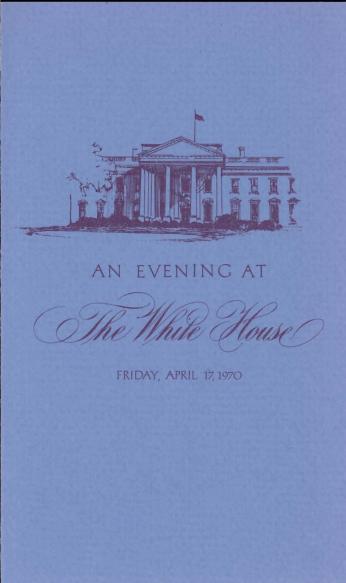
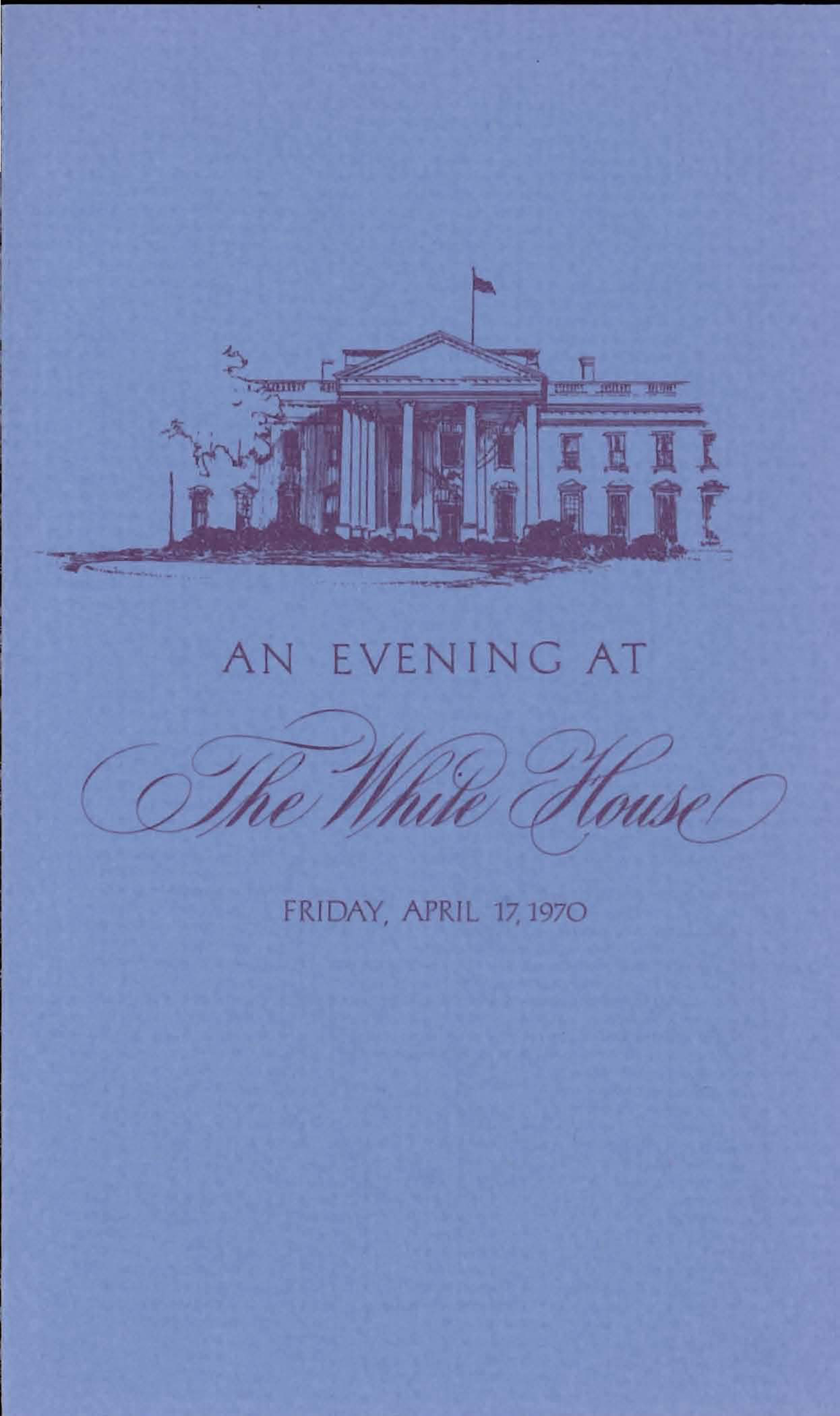
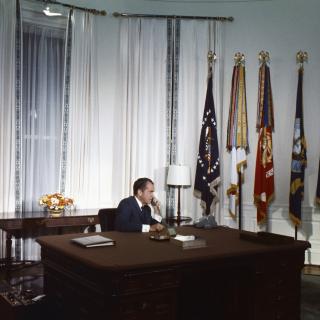
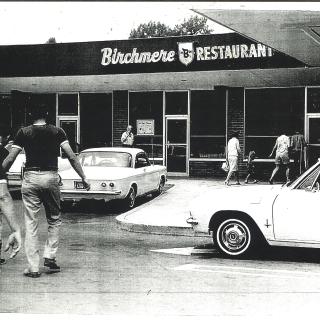
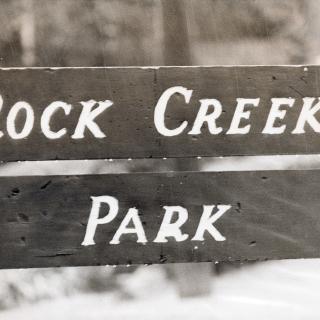
![Sketch of the mythical fuan by Pearson Scott Foresman. [Source: Wikipedia]](/sites/default/files/styles/crop_320x320/public/2023-10/Goatman_Wikipedia_Faun_2_%28PSF%29.png?h=64a074ff&itok=C9Qh-PE1)







